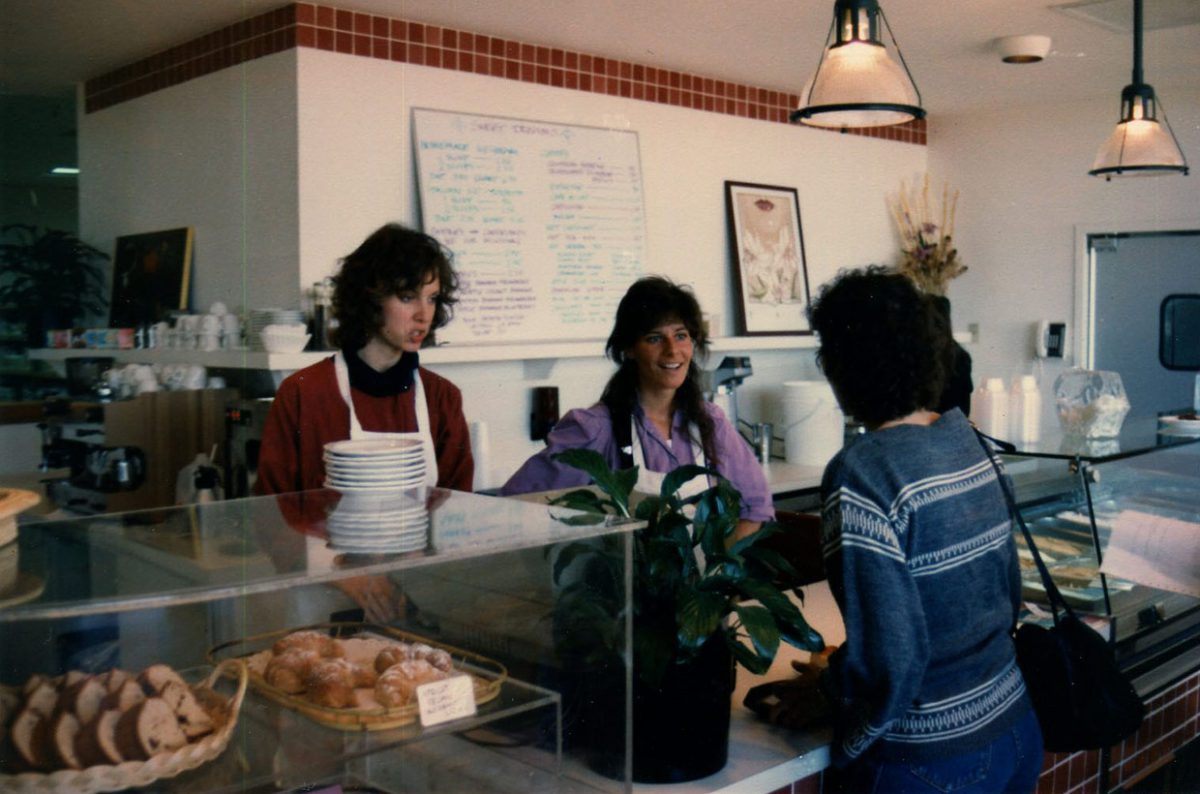Hippie Tycoon by Steffi Kammerer | 6th March, 2017 | Personalities
John Mackey is the founder and CEO of the organic supermarket chain Whole Foods. He doesn’t just sell food, but the promise of good health. Eating organic is a sensual experience, as he has been demonstrating for 35 years. Kale and tofu became wildly popular thanks to him. But today, there’s an organic section in every supermarket, and this means the boss has a problem.
Eating healthy is fun and organic is sexy. By spreading this message through his giant health food temples, John Mackey revolutionized the food industry. Mackey is the founder and CEO of Whole Foods Market – a former hippie and student of philosophy who dropped out of college and ended up creating a supermarket empire that’s traded on the stock exchange. Whole Foods has over 400 stores in the USA and branches in Canada and across the pond in Great Britain. Mackey, who was a vegetarian before going vegan, sells more than just groceries. He sells a clear conscience and the promise of good health and wellbeing. His customers are generally well-to-do, and tend to stop by Whole Foods on their way home from yoga class – perhaps even in the company of Angelina Jolie or Charlize Theron. Supermarket shelves at Whole Foods are stocked with hemp and camel’s milk, tofu and quinoa. Fruits are showcased and illuminated like artworks. And because it’s evidently so easy to spend hundreds of dollars there, the store has earned itself the nickname Whole Paycheck. A quick look online at some photos bears this out: an emu egg for $34.99; truffles for $93; organic almond butter for $23.99. Best of all: a spicy tuna roll for a cool $491.59. Mackey and his then girlfriend opened their first natural foods store on the ground floor of an old house in Austin, Texas, borrowing the money for their venture from friends and family. Mackey was 25. There was a small restaurant upstairs and they lived on the floor above it. As there were no showers – Mackey enjoys telling this story – they used to wash using the dishwasher hose. In 1980, along with two other people, the young couple opened the first store bearing the name Whole Foods Market. This was no longer a small organic grocery but a supermarket operating on 1,000 square meters of space and providing jobs for 19 employees. And instead of stocking only bland-tasting grain products, this store sold meat and excellent chocolate, beer and wine, breaking completely with what was traditionally sold at health food cooperatives, as the The New Yorker quite rightly reported. Mackey told the U.S. magazine that Whole Foods was his “child” and that he was “Daddy” to his employees. In 1984 Whole Foods began expanding into other parts of Texas and opened its first stores in Houston and Dallas. It expanded to the West Coast just a couple of years later. Whole Foods is still headquartered in Austin, where Mackey and his present wife also live. Since 2006, the boss has paid himself a symbolic salary of one dollar.
He explained his reasons for doing so in a letter to his employees: “I am now 53 years old and I have reached a place in my life where I no longer want to work for money, but simply for the joy of the work itself and to better answer the call to service that I feel so clearly in my own heart.” Furthermore, the CEO pledged that Whole Foods would put $100,000 into an employee emergency fund, signing the letter “Love, John.” At that time, there was already a rule in place at Whole Foods that said top executives were not allowed to earn more than 19 times as much as an average employee. Mackey is very serious about things like this. When he travels, he books economy class and spends the night in inexpensive hotels. He drives a Honda hybrid. A few years ago, he referred to economics as the “greatest force for good on the planet,” while touring the States with Conscious Capitalism, his bestselling book.
Companies, he argued, were incapable of existing without making a profit, but they also had a higher purpose. He cited Google, Nordstrom, Southwest and Patagonia as examples of companies that had created social value that was positively reflected in their bottom line. “Very few people find it inspiring just to maximize profit,” says Mackey. More than 30 years ago, he drew up a manifesto on this topic. It still underpins the guidelines governing Whole Foods. There’s more to operating a business than just doing well financially: you have to concern yourself with the wellbeing of workers (or team members, as they are called at Whole Foods), customers, suppliers, the environment and the community. Mackey gives generously and has donated stock options to foundations and animal welfare organizations. Whole Foods has also founded three charitable foundations: Whole Planet, Whole Kids and Whole Cities. Yet Mackey remains a staunch capitalist. Several decades ago, he compared unions to herpes. In fact, he sometimes gets a little carried away with his remarks and doesn’t always weigh his words before speaking. But he is also an unusual chief executive in other ways. Some years ago, he took a five-month sabbatical to hike the Appalachian Trail from Georgia to Maine with friends. When it comes to economics, he has quite Republican views. This makes him controversial. In 2009, he wrote a comment in the Wall Street Journal saying that the Affordable Health Act aka Obamacare was completely unnecessary. Later, he even described it as being “fascist.” Liberals were outraged and called for a Whole Foods boycott. Numerous scandals and lawsuits followed, claiming, for instance, that stores in New York were systematically cheating customers by manipulating the scales, or that products were not nearly as healthy as they claimed because they contained sugar or carcinogenic substances. The biggest crisis struck when it transpired that for about eight years, Mackey had been bad-mouthing a competitor on a stockmarket forum – under a pseudonym, no less. Simultaneously, his online persona praised Whole Foods and even himself, writing “I think he’s cute.” Whole Foods’ shares plummeted after these embarrassing revelations. The company is also feeling the effects of it’s pioneering efforts and the new thinking it introduced, also to its competitors: Today, nearly every supermarket, even Walmart, has an organic food section. Mackey’s claim to faim was that he popularized natural foods, drawing them out their niche and making them mainstream. But sales have slowed and Whole Foods laid off 1,500 workers in the fall of 2015. The company recently launched a discount chain called 365. The aim of these stores is to target millennials – in other words, the future. The first stores have already opened on the West Coast. A really good CEO has a nose for the zeitgeist and follows its lead.










